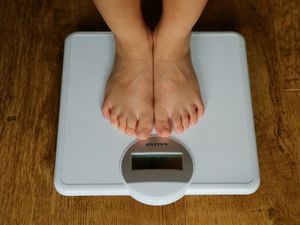Teenage pregnancy rates fall across Shropshire
Pregnancy rates have nearly halved in six years among teenagers in Telford and Wrekin, new data has revealed.
Fewer under 18s across the wider Shropshire area are also becoming pregnant, according to the Office for National Statistics figures.
Sexual health experts put the trend down to better access to contraceptives, and a shift in priorities among a younger generation more focused on their professional careers.
The data shows 20 in every 1,000 women aged between 15 and 17 became pregnant in Telford and Wrekin in 2017, compared with 37 six years earlier.
There were 61 pregnancies, with more than 40 per cent ending with abortion.
In Shropshire the figure was lower at 15 in every 1,000 women, compared to 24 six years earlier.
It accounted for 79 pregnancies, with around half ending in abortion.
Katherine O’Brien, associate director of communications and campaigns at the British Pregnancy Advisory Service, said lower rates of pregnancy among teenagers are partly due to improvements in the information provided to young people.
She said: "There is no doubt that improved access to contraception, particularly highly-effective long-acting methods such as the contraceptive implant, has had a significant impact.
"This may be in part due to improvements in the information we are giving our young people, but wider societal shifts are also being reflected in the downward trend.
"We know that young people today are very much focused on their education, determined to succeed in a challenging economic environment, and feel that having a child at this stage will be disruptive to their life goals.
"Far from the stereotype of groups of teenagers binge drinking, young people are consuming alcohol at much lower levels, spending significant amounts of time socialising with friends online rather than face-to-face."
Across England and Wales, there were 847,204 conceptions among women of all ages, of which 16,740 were aged between 15 to 17.
Natika Halil, chief executive of sexual health charity FPA, put the fall in teenage pregnancy rates down to hard work from health and education professionals.
She said: "That's why it's so concerning to see the cuts to sexual health services across the country, which could so easily undermine this hard-won achievement.
"Teenage pregnancy can be reduced by investing the right time, resources and expertise into services and education.
"This investment not only saves money in the long-term, but also helps prevent the range of negative long-term educational, health and social outcomes that young parents and their children are more likely to experience."





